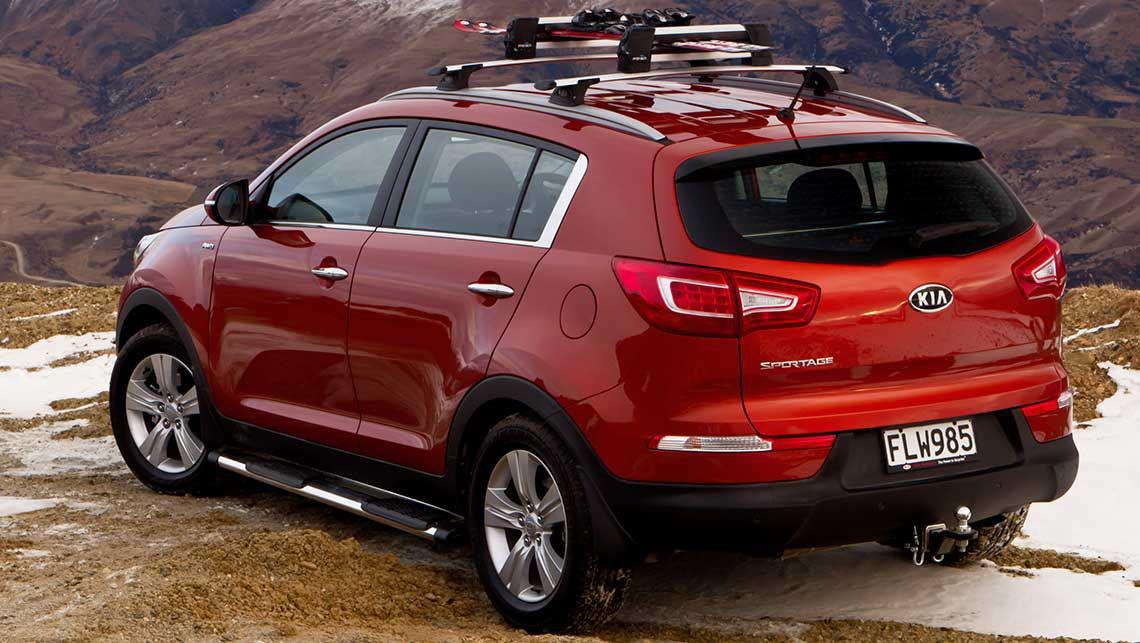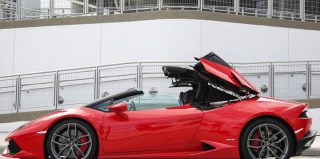World Maritime News MSC Seaside under Construction at Fincantieri Warnemünde Bustling with Cruise Activity Transits Through Expanded Panama Colon The Attack of the Drones Southampton Welcomes Back Maersk Line Regal Princess Arrives in RotterdamRegal Princess\’ Very first Hamburg Call Part of the Wish Floated Out Panama Colon Expansion Comes in Its Final Gam Ovation of […]
Stop Kidding Yourself. A Classic Car Is (Almost) Never a Good Investment
A Ferrari three hundred sixty five from one thousand nine hundred seventy two is expected to fetch somewhere around $450,000 during the annual Pebble Beach Concours d'Elegance in Monterey, Calif. this weekend. When it was last bought in 2008, the car was worth $160,000. For the investment, the fortunate holder may receive harshly triple his money and a few memorable – albeit nerve-wracking – road trips with 8-track theme music.
So should you be attempting to get into the vintage-car game? In a word: no. No way. Absolutely not. Here's why:
1. Lots of Idling
The Pebble Beach sales, like most marquee car auctions, are an exception. Only about three percent of vintage cars sell at auction and they are the best of the best. It’s like watching a super-cut of holes-in-one and determining to attempt your forearm at golf.
In reality, values for scads of vintage cars have been relatively stable for years. Detroit classics from the 1950s, for example, have mostly idled in the past decade, according to Hagerty Insurance, which tracks the values of the various old rails it underwrites. The same goes for muscle cars and so-called affordable collectibles like the Triumph TR6 and the Volkswagen Beetle.
 Two. A Tendency to Stall
Rolling assets are not in any way recession-proof, no matter what the exotic car dealer tells you. In the two thousand eight downturn, the only upside to wielding a vintage Mercedes three hundred with gull-wing doors was feeling slightly less frightened to actually drive it. From the third quarter of two thousand eight to the third quarter of 2009, the value of “blue-chip” collectibles like “the Gullwing” glided by nineteen percent, according to Hagerty. That’s more than twice as much as the Standard & Poor’s five hundred Index. A sampling of vintage Ferraris in that window fared even worse, plummeting twenty five percent.
 Three. Running Hot
Post-recession, the rebound was swift. A lot of vintage-car gurus believe that the run-up in prices since the recession is officially in ”foamy” territory. A Hagerty monthly index of accomplished sentiment on the market has dropped nine percent in the past year.
Rick Drewry, senior claims specialist of collector cars at American Modern Insurance Group, said the auctions are embarking to attract investors who don't know much about cars at all. “I'm embarking to see cars that weren't ever that good go up in value,” he explained. “For the longest time, they were throw-aways.” In brief, we may be approaching peak Porsche.
Four. Slow and Saggy
Here's an awkward truth: Classic cars are kind of awful — at least relatively speaking one . Sure, they are moving time capsules of miraculous engineering and most of them have swoon-worthy looks. But would you race a 50-year-old road bicycle or do your taxes on a computer from 1965? In terms of going quick and treating the kinks, today’s most pedestrian vehicles are far more capable than almost all vintage rails.
Take that Ferrari three hundred sixty five from 1972. It gets to sixty miles-per-hour in about seven seconds and has a top speed of 163. Today’s sportiest Ford Concentrate puts out similar numbers with eight fewer cylinders, a bunch more airbags, and a back-up camera to boot. Sure, it doesn't have an 8-track, but it also doesn't have six separate carburetors to tune.
 Five. If You Must Buy…
If absolutely none of these facts sway you, at least go for the German and Italian brands. Avoid anything manufactured by the Americans or the Brits. Sure, they are hot at the moment and tend to crash tighter, but the economic magic behind companies like Porsche and Ferrari is on the supply side. They simply didn’t make that many cars, which means that when markets get hot they have a bit of a turbo effect.
When shopping for your desire car, consider models from the 1980s and 1990s. They were the ones on bedroom posters of Generation Xers who are coming in in their prime earning years and they are just now embarking to appreciate accordingly. A Lamborghini Countach from one thousand nine hundred eighty nine is the ideal example. “For a kid in the '80s, that car was like a unicorn,” Drewry said.
A one thousand nine hundred eighty nine Lamborghini Countach, the stuff of Gen-X school-boy fantasies.
Eventually, if you're arched on buying old cars, get as many as you can afford. Classic vehicles are like lil’ tech companies: it’s very difficult to tell which ones are going to take off. Just don’t leave behind about the management fees (read: mechanics).
Yes, I am trolling collectors here. And yes, I would much rather have a 1970s Ferrari than just about any current vehicle.
Stop Kidding Yourself
Stop Kidding Yourself. A Classic Car Is (Almost) Never a Good Investment
A Ferrari three hundred sixty five from one thousand nine hundred seventy two is expected to fetch somewhere around $450,000 during the annual Pebble Beach Concours d'Elegance in Monterey, Calif. this weekend. When it was last bought in 2008, the car was worth $160,000. For the investment, the fortunate holder may receive harshly triple his money and a few memorable – albeit nerve-wracking – road trips with 8-track theme music.
So should you be attempting to get into the vintage-car game? In a word: no. No way. Absolutely not. Here's why:
1. Lots of Idling
The Pebble Beach sales, like most marquee car auctions, are an exception. Only about three percent of vintage cars sell at auction and they are the best of the best. It’s like watching a super-cut of holes-in-one and determining to attempt your forearm at golf.
In reality, values for scads of vintage cars have been relatively stable for years. Detroit classics from the 1950s, for example, have mostly idled in the past decade, according to Hagerty Insurance, which tracks the values of the various old rails it underwrites. The same goes for muscle cars and so-called affordable collectibles like the Triumph TR6 and the Volkswagen Beetle.
 Two. A Tendency to Stall
Rolling assets are not in any way recession-proof, no matter what the exotic car dealer tells you. In the two thousand eight downturn, the only upside to possessing a vintage Mercedes three hundred with gull-wing doors was feeling slightly less frightened to actually drive it. From the third quarter of two thousand eight to the third quarter of 2009, the value of “blue-chip” collectibles like “the Gullwing” glided by nineteen percent, according to Hagerty. That’s more than twice as much as the Standard & Poor’s five hundred Index. A sampling of vintage Ferraris in that window fared even worse, plummeting twenty five percent.
 Trio. Running Hot
Post-recession, the rebound was swift. A lot of vintage-car gurus believe that the run-up in prices since the recession is officially in ”foamy” territory. A Hagerty monthly index of experienced sentiment on the market has dropped nine percent in the past year.
Rick Drewry, senior claims specialist of collector cars at American Modern Insurance Group, said the auctions are kicking off to attract investors who don't know much about cars at all. “I'm embarking to see cars that weren't ever that good go up in value,” he explained. “For the longest time, they were throw-aways.” In brief, we may be approaching peak Porsche.
Four. Slow and Saggy
Here's an awkward truth: Classic cars are kind of awful — at least relatively speaking one . Sure, they are moving time capsules of miraculous engineering and most of them have swoon-worthy looks. But would you race a 50-year-old road bicycle or do your taxes on a computer from 1965? In terms of going prompt and treating the forms, today’s most pedestrian vehicles are far more capable than almost all vintage rails.
Take that Ferrari three hundred sixty five from 1972. It gets to sixty miles-per-hour in about seven seconds and has a top speed of 163. Today’s sportiest Ford Concentrate puts out similar numbers with eight fewer cylinders, a bunch more airbags, and a back-up camera to boot. Sure, it doesn't have an 8-track, but it also doesn't have six separate carburetors to tune.
 Five. If You Must Buy…
If absolutely none of these facts sway you, at least go for the German and Italian brands. Avoid anything manufactured by the Americans or the Brits. Sure, they are hot at the moment and tend to crash firmer, but the economic magic behind companies like Porsche and Ferrari is on the supply side. They simply didn’t make that many cars, which means that when markets get hot they have a bit of a turbo effect.
When shopping for your wish car, consider models from the 1980s and 1990s. They were the ones on bedroom posters of Generation Xers who are coming in in their prime earning years and they are just now commencing to appreciate accordingly. A Lamborghini Countach from one thousand nine hundred eighty nine is the ideal example. “For a kid in the '80s, that car was like a unicorn,” Drewry said.
A one thousand nine hundred eighty nine Lamborghini Countach, the stuff of Gen-X school-boy fantasies.
Ultimately, if you're arched on buying old cars, get as many as you can afford. Classic vehicles are like little tech companies: it’s very difficult to tell which ones are going to take off. Just don’t leave behind about the management fees (read: mechanics).
Yes, I am trolling collectors here. And yes, I would much rather have a 1970s Ferrari than just about any current vehicle.



